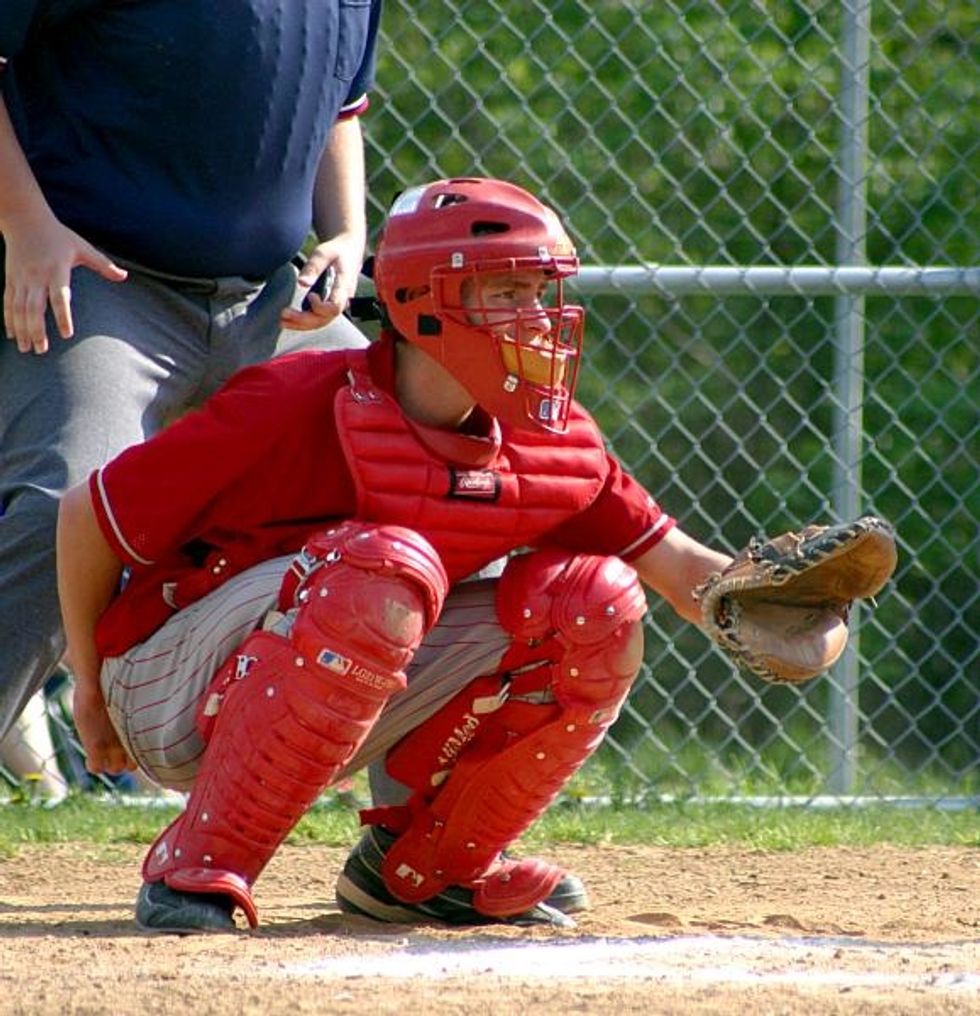You see someone in the hallway. You walk up to them and then squat down before you start talking. You may be wondering why someone would ever do this during a conversation with another person.
Perhaps this interaction between an adult and a small child or Shaquille O'Neal and Danny DeVito. No. This is the sad reality of how many conversations between wheelchair users and able-bodied people.
While there may be no malicious intent behind popping a squat in the hallway, I- the neighborhood disabled girl- am here to set the record straight. I can't walk, I can look up, so there is no need for you to get down on my level.
Eye contact is very important, yes. You can still gaze into my meatball-esque eyes from your prospective height of about five foot six. I can attest it is possible and unlike stunts you see on "MTV," you can try this at home.
Your attempts to be accommodating and considerate of the strain conversation cause on my cervical spine are much appreciated, the stoop of your back only reads as patronizing.
It is common practice in parenting to lower yourself down to the child's eye level as to show to the child they have your undivided attention. This is a great strategy for promoting the development and growth of a child's social development. However, I hereby release you from the obligation to further my social development.
Not all wheelchair users are particularly against able-bodied people taking a knee during a conversation. However, the sentiment of being treated like a child has the disabled community alike irked.
The sad reality for too many disabled people is the rest of the world is quick to assume we are cognitively unaware or helpless in need of hero crusading in on two working legs.
As soon as we step- or as abled people like to muse, "roll"- out of our houses, we are bombarded with concerned passerby who questions our ability to do even anything at all. Constantly being pestered by people asking if I need help really wears on your patience.
Que the Make-A-Wish jokes, but my wish is to go to the grocery store or gym without being called, "brave." The only brave portion of my grocery shopping is having to face the cashier with a cart full of Type Two Diabetes inducing treats.
In fairness, the true issue is not the level at which abled bodied speak to the disabled; rather it simply reinforces a societal misconception that disabled people need to be treated as if we are less than everyone else.
One person cannot single-handedly solve the haunting stigma people with disabilities, but you can make a conscious effort to not contribute to the problem.
So, if you see me in the hallway and come to say hi, stay on your level and I'll stay on mine.
- Meet The Girl Who's Changing Sorority Life ›
- What It's Really Like Working With Disabled Young Adults ›
- Everyone Has a Disability ›
- What Not To Say To Someone With An Invisible Physical Disability ›
- If Disney Is Serious About Inclusion, They Should Introduce A ... ›
- I have a disability and i'm proud of it ›
- Why We Need Better Disability Representation On TV ›
- To The GMU Sororities That Decided Disabilities Are Disqualifying ... ›
- On Disability And Gender Roles ›
- Why I Am Actually Proud Of My Disability ›
- One in four Brits admit to avoiding conversations with disabled people ›
- How Not To Talk To A Disabled Person : Video 2018 : Chortle : The ... ›
- Talking to Your Kids About Disability | The Mighty ›
- How to talk to a disabled child | The Daily World ›
- How to talk to people with disabilities without sounding so awkward ›
- Susan Robinson: How I fail at being disabled | TED Talk ›
- How to talk to your child about disabilities (ages 5 to 8) | BabyCenter ›
- How to talk to your child about disabilities (ages 5 to 8) | BabyCenter ›
- How to Talk to People with Disabilities - YouTube ›
- Choosing Words for Talking About Disability ›
- How To Talk To A Person With Disabilities Without Sounding Like ... ›
















